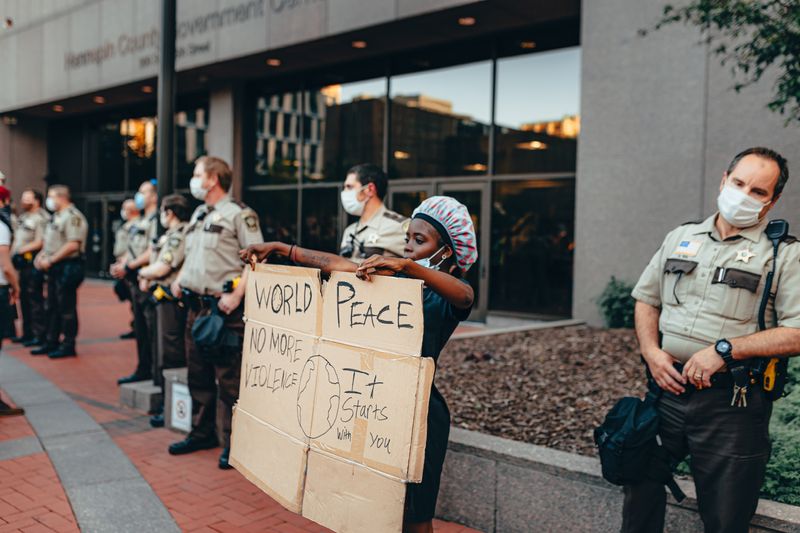Leslie Van Houten: A Controversial Release from Prison
The Infamous Manson Murders
California’s criminal justice system has been thrust into the spotlight once again with the recent release of Leslie Van Houten, a former follower of Charles Manson who was convicted for her role in the infamous Manson murders in 1969. Van Houten, now 73 years old, had spent 53 years behind bars before being granted parole.
Van Houten’s involvement in the murders of Leno LaBianca, a grocer in Los Angeles, and his wife, Rosemary, shocked the nation and marked a grim chapter in American history. The Manson cult’s heinous acts of violence sent shockwaves through society, and the release of one of Manson’s followers has raised questions about justice, rehabilitation, and the parole process.
A Long Legal Battle
The decision to release Van Houten was not made overnight. The California parole board ruled on five separate occasions, starting in 2016, that she was “suitable” for parole and no longer a danger to society. However, each time the governor’s office vetoed the decision and ordered her to remain incarcerated.
Van Houten’s attorneys fought against these veto decisions, and in May, a state appeals court ruled in her favor, stating that she should be released. The court acknowledged her accomplishments while in prison, including her work as a tutor, her earning of a master’s degree in humanities, and her participation in various mental health and self-help programs.
A Case for Rehabilitation
Van Houten’s attorney, Nancy Tetreault, emphasized her client’s dedication to reform and rehabilitation during her decades-long incarceration. Tetreault highlighted Van Houten’s efforts to confront her past actions, address her feelings of guilt, and seek therapy and programming aimed at rehabilitation.
Tetreault argued that Van Houten’s progress and accomplishments should serve as an example to other incarcerated individuals that reform is possible. She believes that the parole board’s decision to release Van Houten demonstrates hope for young people in prison who have committed serious crimes.
A Divided Response
The release of Leslie Van Houten has elicited mixed reactions from the public and the victims’ families. Governor Gavin Newsom, who had opposed her release, expressed disappointment in the court’s decision but stated he would not appeal since the chances of success were slim.
On the other hand, the daughter of Leno LaBianca, Cory LaBianca, expressed her heartbreak over Van Houten’s pending release, saying that her family had missed out on the opportunity to know her parents and that there was a void in their lives.
Furthermore, criminal justice reform activists argue that Van Houten’s case highlights flaws in California’s parole process. They contend that elderly incarcerated individuals can be denied release even after the state parole board deems them rehabilitated and posing no threat. They see the vetoing of parole grants in high-profile cases as political decisions that prioritize retribution over rehabilitation.
A Question of Justice and Rehabilitation
The release of Leslie Van Houten brings forth profound questions about the purpose of the criminal justice system and the possibility of rehabilitation. Should the justice system prioritize punishment or focus on rehabilitating individuals who have committed serious crimes?
Van Houten’s case raises the issue of whether long sentences that go beyond reasonable punishment primarily serve as retribution or contribute to genuine rehabilitation. Her attorney argues that more consideration should be given to the transformative power of rehabilitative programming and mental health support for incarcerated individuals.
The Need for Criminal Justice Reform
California, like many other states, faces a growing crisis with an aging population behind bars. Elderly incarcerated people serving lengthy or indefinite sentences often have limited opportunities for release, even when considered rehabilitated. Civil rights lawyers argue that a more compassionate approach that prioritizes rehabilitation could help mitigate this humanitarian crisis.
While Leslie Van Houten’s release has sparked controversy, it also offers an opportunity for reflection and discussion on the purpose and effectiveness of our criminal justice system. It forces us to confront difficult questions about forgiveness, redemption, and the potential for change.
As California grapples with the legacy of the Manson murders and the complex issue of criminal justice reform, the release of Leslie Van Houten serves as a reminder of the ongoing need for compassion, fairness, and thoughtful reform in the pursuit of justice for all.

<< photo by Josh Hild >>
The image is for illustrative purposes only and does not depict the actual situation.
You might want to read !
- Golden Glory: Hugh Grant’s Oompa-Loompa Steals the Spotlight in Whimsical ‘Wonka’ Trailer
- “Metal Mayhem: Judas Priest Steps in for Ozzy Osbourne at Power Trip Festival”
- Judas Priest Steals the Spotlight: Ozzy Osbourne’s Replacement at Power Trip Festival
- Ukraine’s Nova Kakhovka Dam: A Comprehensive Overview
- “The Untold Story of Kathleen Folbigg: Tracing the Tragedy of Australia’s Most Notorious Convicted Killer”.
- “From Infamy to Redemption: The Story of Australia’s Most Hated Woman and Her State Pardon”
- The Long Road to Freedom: Leslie Van Houten’s Release from Prison after 50 Years
- “Holding Power to Account: The Guilty Verdict for Former Teacher Chris Dawson’s Sexual Misconduct”
- “Remembering the infamy of Ted Kaczynski: The story of the ‘Unabomber’ who waged war against modern society ends with his death at 81”
- “Disgraced sports doctor Larry Nassar attacked in prison: Unveiling the dark consequences of his crimes”
- Unmasking the Shadows: Sarah Brady Sheds Light on Jonah Hill’s Alleged Emotional Abuse




